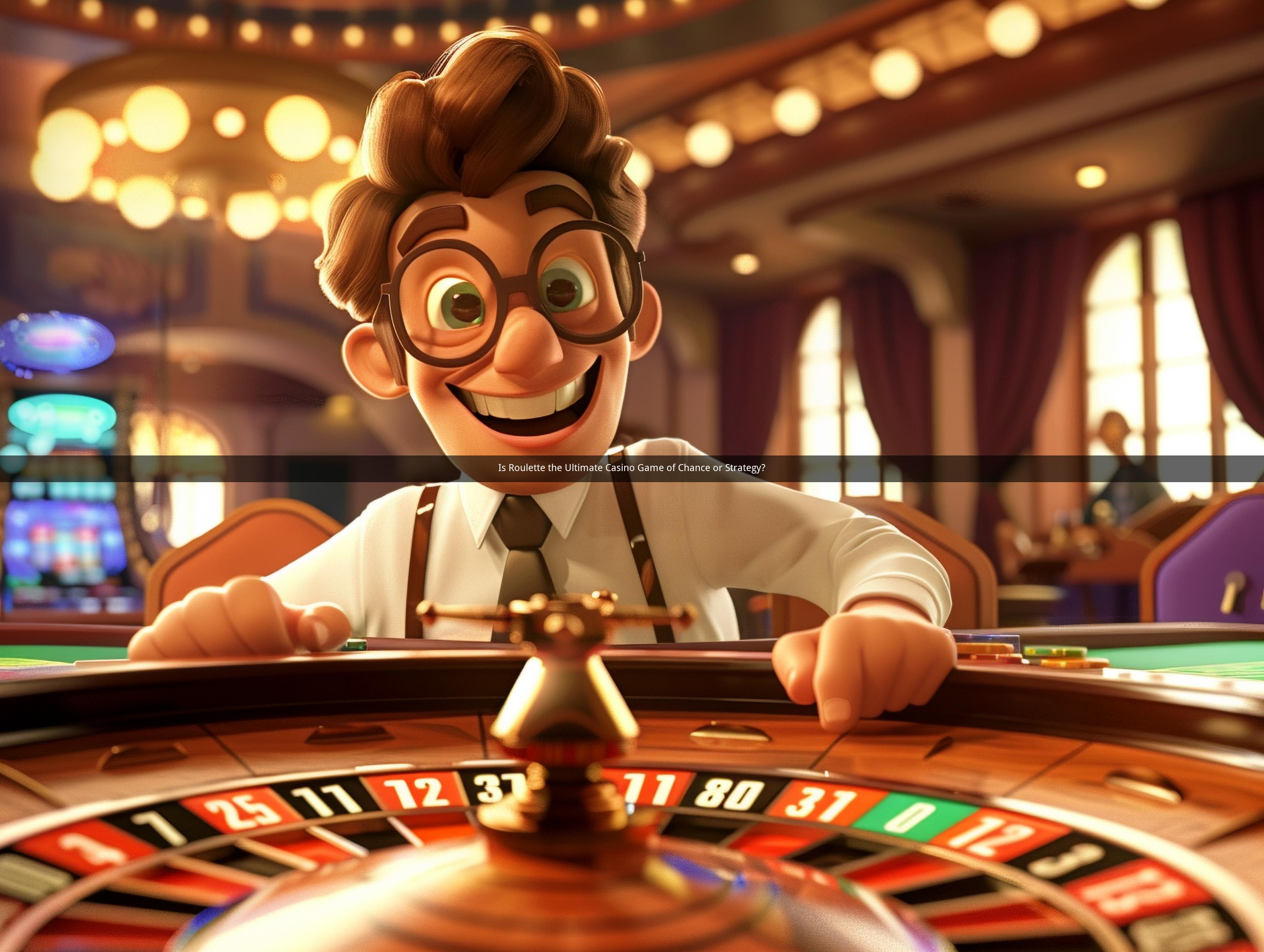
Table of Contents
1. The Allure of Roulette: A Brief History
2. The Wheel: The Heart of Roulette
3. Inside the Casino: A Glimpse into the Roulette Table
4. Betting Strategies: The Art of the Spin
5. The Psychology of Roulette: Emotion vs. Logic
6. The Evolution of Roulette: From Traditional to Online
7. Roulette in Pop Culture: A Symbol of Luck and Risk
8. The Mathematics of Roulette: Probability and the House Edge
9. Interactive Roulette: The Rise of Online Play
10. Roulette Around the World: A Global Game
11. The Emotional Rollercoaster: Winning and Losing in Roulette
12. Conclusion: Is Roulette a Game of Chance or Strategy?
---
1. The Allure of Roulette: A Brief History
Roulette, a game of chance that has captivated gamblers for centuries, is steeped in history. Originating in 17th-century France, the game was created by Blaise Pascal, a mathematician and inventor, as a scientific experiment. However, it quickly transformed into a popular pastime in casinos, with its spinning wheel and the thrill of the unknown.
2. The Wheel: The Heart of Roulette
At the center of every roulette game is the wheel, a marvel of engineering and design. The wheel is divided into 37 or 38 numbered pockets, depending on whether it's a European or American version. The colors alternate between red and black, with the zeros in green. The wheel's spinning motion is a dance of chance, a ballet of fate that determines the outcome of each spin.
3. Inside the Casino: A Glimpse into the Roulette Table
Step into a casino, and you're immediately greeted by the vibrant atmosphere of the roulette table. The table is a labyrinth of betting options, with a grid of numbers and a variety of betting areas. The croupier, the game's host, stands at the center, orchestrating the game with a swift, sure hand.
4. Betting Strategies: The Art of the Spin
Betting in roulette is an art form. Players can choose from a myriad of betting options, from the simple red or black to more complex combinations like the "Orphelins" or "Tiers du Cylindre." Each bet carries a different risk and reward, requiring players to weigh their chances carefully.
5. The Psychology of Roulette: Emotion vs. Logic
The psychology of roulette is a fascinating study. Players often find themselves caught in a battle between emotion and logic. The thrill of the win can be intoxicating, leading players to make irrational decisions. Yet, the game's inherent randomness reminds us that sometimes, the best strategy is to enjoy the ride.
6. The Evolution of Roulette: From Traditional to Online
Roulette has evolved significantly over the years. While traditional casinos remain popular, online roulette has gained a significant following. The convenience of playing from home or on the go has opened up a new world of possibilities for roulette enthusiasts.
7. Roulette in Pop Culture: A Symbol of Luck and Risk
Roulette has left an indelible mark on pop culture. From James Bond's high-stakes games to the roulette wheel in the classic film "Casino," the game has become a symbol of luck and risk, a metaphor for life's unpredictable twists and turns.
8. The Mathematics of Roulette: Probability and the House Edge
Mathematics plays a crucial role in roulette. The probability of hitting a particular number is 1 in 37 or 38, depending on the version of the game. The house edge, the advantage the casino holds, varies but is typically around 2.7% in European roulette and 5.26% in American roulette.
9. Interactive Roulette: The Rise of Online Play
Online roulette has revolutionized the game, offering players an interactive experience like never before. Live dealer games allow players to engage with a real croupier, while software-generated games offer the convenience of playing at any time.
10. Roulette Around the World: A Global Game
Roulette is a global game, played in casinos from Monte Carlo to Macau. Each region has its own unique twist on the game, from the traditional French roulette to the fast-paced American version.
11. The Emotional Rollercoaster: Winning and Losing in Roulette
Playing roulette is an emotional rollercoaster. The thrill of a win is matched only by the despair of a loss. Yet, it's this emotional intensity that keeps players coming back for more, drawn to the game's unpredictable nature.
12. Conclusion: Is Roulette a Game of Chance or Strategy?
In the end, is roulette a game of chance or strategy? The answer lies in the player's perspective. While the game's outcome is ultimately determined by chance, players can employ strategies to enhance their chances. The true essence of roulette lies in the thrill of the unknown, the joy of playing, and the lessons learned along the way.
---
Questions and Answers
Q1: What is the difference between European and American roulette?
A1: The main difference is the number of zeros on the wheel. European roulette has a single zero, while American roulette has two zeros, which increases the house edge.
Q2: Can you win consistently at roulette?
A2: While it's possible to win consistently, it requires a combination of skill, strategy, and a bit of luck. Many players find that the house edge makes it challenging to win over the long term.
Q3: Is online roulette as exciting as playing in a casino?
A3: Online roulette offers a unique experience, with the convenience of playing from home. While it lacks the atmosphere of a casino, the technology has improved significantly, providing a realistic and engaging experience.
Q4: Can roulette be considered a form of gambling addiction?
A4: Yes, roulette can be a form of gambling addiction. The thrill of the game and the potential for winning can lead to compulsive behavior, which can have serious consequences.
Q5: How does the live dealer roulette experience compare to the software-generated version?
A5: Live dealer roulette offers a more interactive experience, with players able to engage with a real croupier. Software-generated games are more convenient but lack the human element. Both have their own unique appeal.